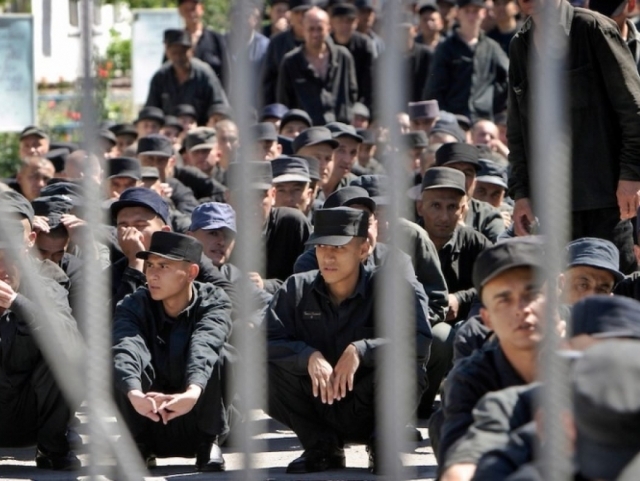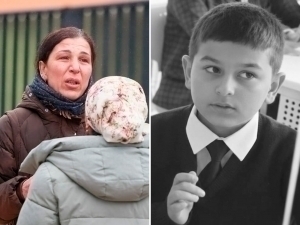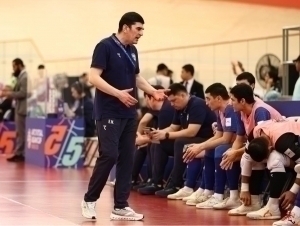Uzbek prisoners in abroad might be brought to Uzbekistan, but what about those in Russia?
Review
−
14 August 2024 11631 4 minutes
A new provision in Uzbekistan's legislation now allows Uzbek nationals convicted of crimes in certain foreign countries to serve their sentences in Uzbekistan's own penal institutions.
On August 13, during a regular session of the Legislative Chamber of the Oliy Majlis, the draft law "On Amendments and Additions to the Criminal Procedure Code of the Republic of Uzbekistan" was reviewed in its second reading.
This draft law outlines the following procedures for international cooperation in criminal matters:
- The Prosecutor General or their deputy may submit a motion to the Supreme Court to recognize and enforce the decision of a foreign court;
- The petition will be considered by the district (city) court for criminal cases at the permanent residence of the person deprived of liberty or subject to coercive medical measures. If the person has no permanent residence, the case will be heard at the location of their last registration within Uzbekistan;
- The transfer and acceptance of a prisoner or a person subject to coercive medical measures may be initiated upon the application of their legal representative or close relative, as well as upon the request of the General Prosecutor's Office or the authorized body of a foreign state, provided the person being transferred, or their legal representative, consents;
- The decision to transfer a prisoner or a person subject to coercive medical measures, and their acceptance, is based on a court ruling following the Prosecutor General's motion or that of their deputy.
The draft law was approved by the deputies and forwarded to the Senate. However, this does not imply that Uzbek prisoners in Russia will automatically be returned to Uzbekistan.
During the session, it was noted that Uzbekistan has so far signed agreements with only ten foreign countries regarding the mutual transfer of incarcerated individuals to continue serving their sentences or for the continuation of compulsory treatment for mentally ill persons. These countries include Italy, Turkey, Georgia, Azerbaijan, Kazakhstan, Iran, the United Arab Emirates, Latvia, Turkmenistan, and Ukraine.
Sherzod Tokhtashev, a deputy from the "National Revival" party and one of the law's initiators, clarified to QALAMPIR.UZ that the legislation does not pertain to Uzbek prisoners in Russia.
"Indeed, many believe this law applies to prisoners in Russia. Unfortunately, Uzbekistan currently lacks a bilateral agreement with Russia regarding the continuation of sentences for prisoners. We have such agreements with only ten countries. If an agreement with Russia is reached in the future, the exchange will follow the procedures we have established," he stated.
He also acknowledged the numerous appeals from citizens seeking the return of their loved ones imprisoned in Russia.
"We often receive requests to bring back a child or relative from Russian prisons to Uzbekistan. However, due to the absence of an agreement with Russia on prisoner exchange, these requests cannot be fulfilled," said the deputy from the "Milliy Tiklanish" party.
According to the Legislative Chamber of the Oliy Majlis, 20 Uzbek citizens in Italy, 250 in Turkey, and over 450 in Kazakhstan are currently serving prison sentences.
However, there is no reliable data on the number of Uzbek prisoners in Russia available from relevant Uzbek state agencies. For instance, a source from the Foreign Labor Migration Agency informed QALAMPIR.UZ that the agency lacks authority to influence Russian prison policies. As a result, it is challenging to ascertain the exact number of Uzbeks detained in Russian prisons.
"For many years, Russia has not disclosed this information," the source added.
The Information Service of the General Prosecutor's Office of Uzbekistan has reported that there is no available information regarding the number of Uzbek citizens currently serving sentences in Russian penal institutions.
In fact, the last time information was disclosed concerning citizens of other countries imprisoned in Russia for crimes was in 2017. According to that data, Uzbeks ranked second in the number of prisoners in Russia, with 6,362 Uzbeks incarcerated as of the first half of 2017. Tajikistan ranked first, with 8,002 of its citizens serving sentences in Russian prisons during the same period. Ukrainians (4,761 individuals) and Azerbaijanis (2,350 individuals) followed in subsequent rankings.
Usmon Baratov, the recently imprisoned leader of the inter-regional Uzbek society "Vatandosh," has stated that Uzbek citizens often commit crimes in Russia. However, he also suggested that many Uzbeks could be victims of wrongful accusations.
Live
All



